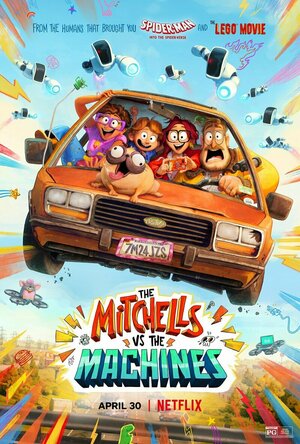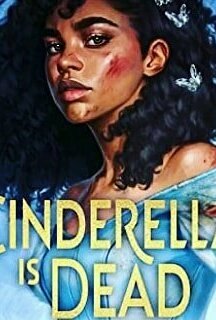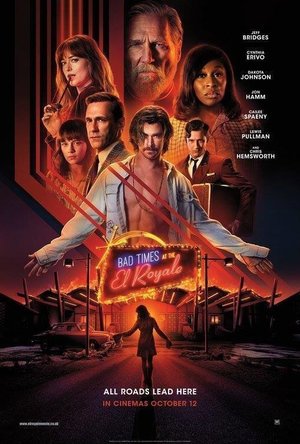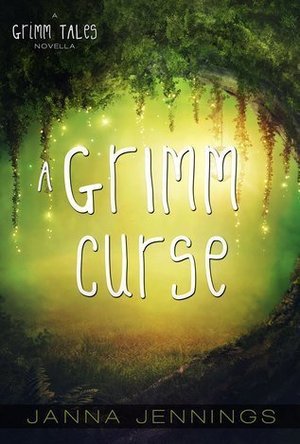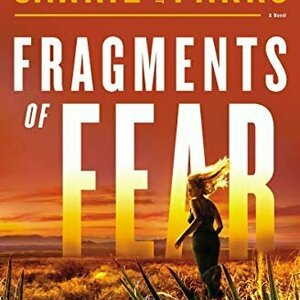Search
Search results
Bob Mann (459 KP) rated The Mitchells vs The Machines (2021) in Movies
May 16, 2021
Brilliantly original animation (1 more)
Fantastic laugh-out-loud gags throughout, many with a movie nerd bias
Dog-Pig-Dog-Pig-Loaf of Bread… KERBOOM!
Katie Mitchell (voiced by Abbi Jacobson) dreams of being a great film director (joining her icons on her version of Mount Rushmore!). She's about to travel to a west-coast film college when her dad Rick (Danny Mcbride) decides to cancel her air ticket and try to re-engage with her through one last epic road trip. Together with wife Linda (Maya Rudolph), dinosaur-mad son Aaron (director Michael Rianda) and cross-eyed pug Monchi (Doug the Pug!) they set off on their journey.
But the world is set to change forever, as sentient operating system PAL (Olivia Colman) and her army of robots take over the world and prepare to launch human-kind into deep dark space. The Mitchell's, as the world's unlikeliest Avengers, appear to be the only ones available to prevent the evil plan!
Positives:
- In my review of the lamentable "Thunder Force", I commented that it failed my "six laughs test" for a comedy. I only laughed 3 times in the whole film. In contrast, this movie hammered home guffaw-generating lines and scenes about six times a minute! It's hilarious. It's one of those films (like the best Pixar ones) with so much hidden detail buried in every shot. You could watch it a dozen times and still find new hidden gags.
- This is a movie that is the perfect family film. A film that kids will love for the knockabout comedy and a film that adults will also fall in love with. This comes from three different angles:
-- Excellent character development of the whole family. Katie feels like a fully rounded stroppy teen: she seems to be struggling with her identity (lesbian? - "It took me a while to figure myself out"); and she is struggling towards her personal goals despite the well-intentioned but destructive doubts that her rough-and-ready father keeps sowing. This feels like a journey that the family is on towards enlightenment, before it's too late.
-- This is also a film with considerable emotional heft. It channels at times some of the best elements of the Toy Story films (most notably "Toy Story 3" with Andy's departure for college). (Any parents who have never experienced that joyous yet dreadful day when you drive your chicks to university or college for the first time: brace yourselves!)
-- It's a dream for film fans. Like "Ready Player One", it's populated with lots of fun movie easter-eggs scattered throughout. Katie's 'Mount Rushmore' by the way has Greta Gerwig, Céline Sciamma (from "Portrait of a Lady on Fire"), Lynne Ramsey and Hal Ashby as her directorial inspirations.
- And finally, it's a film for adults appreciative of some truly great satirical one-liners, including some razor-sharp zingers at 'big tech'. For example:
"It's almost like stealing people's data and giving it to a hyper-intelligent AI as part of an unregulated tech monopoly was a bad thing"
Negatives:
- My only minor criticism - and its a debatable one - might be the running time of 113 minutes. It might be a little too long for younger kids' attention spans. A 90 minute, more condensed, movie might have ticked the 'perfection' box.
Summary Thoughts: I don't normally "go" for animated films much. But this one is a different breed. An instant classic. It knocks you round the chops and forces your respect by being like no animated feature you've seen before. Witty, irreverent, gloriously entertaining it's a no-brainer that this gets 5-stars from me.
I said in my review of "Nomadland" that although that wasn't a 5* film for me, I could see why its brave and different slant at film-making earned it the Best Film Oscar. Well, almost regardless of what epically beautiful production Pixar might bring out before the end of the year, if the Academy doesn't vote this Best Animated Feature at next year's Oscars, then some sort of crime might have been committed.
(For the full graphical review, please check out the One Mann's Movies review here - https://bob-the-movie-man.com/2021/05/16/the-mitchells-vs-the-machines-dog-pig-dog-pig-loaf-of-bread-kerboom/. Thanks.)
But the world is set to change forever, as sentient operating system PAL (Olivia Colman) and her army of robots take over the world and prepare to launch human-kind into deep dark space. The Mitchell's, as the world's unlikeliest Avengers, appear to be the only ones available to prevent the evil plan!
Positives:
- In my review of the lamentable "Thunder Force", I commented that it failed my "six laughs test" for a comedy. I only laughed 3 times in the whole film. In contrast, this movie hammered home guffaw-generating lines and scenes about six times a minute! It's hilarious. It's one of those films (like the best Pixar ones) with so much hidden detail buried in every shot. You could watch it a dozen times and still find new hidden gags.
- This is a movie that is the perfect family film. A film that kids will love for the knockabout comedy and a film that adults will also fall in love with. This comes from three different angles:
-- Excellent character development of the whole family. Katie feels like a fully rounded stroppy teen: she seems to be struggling with her identity (lesbian? - "It took me a while to figure myself out"); and she is struggling towards her personal goals despite the well-intentioned but destructive doubts that her rough-and-ready father keeps sowing. This feels like a journey that the family is on towards enlightenment, before it's too late.
-- This is also a film with considerable emotional heft. It channels at times some of the best elements of the Toy Story films (most notably "Toy Story 3" with Andy's departure for college). (Any parents who have never experienced that joyous yet dreadful day when you drive your chicks to university or college for the first time: brace yourselves!)
-- It's a dream for film fans. Like "Ready Player One", it's populated with lots of fun movie easter-eggs scattered throughout. Katie's 'Mount Rushmore' by the way has Greta Gerwig, Céline Sciamma (from "Portrait of a Lady on Fire"), Lynne Ramsey and Hal Ashby as her directorial inspirations.
- And finally, it's a film for adults appreciative of some truly great satirical one-liners, including some razor-sharp zingers at 'big tech'. For example:
"It's almost like stealing people's data and giving it to a hyper-intelligent AI as part of an unregulated tech monopoly was a bad thing"
Negatives:
- My only minor criticism - and its a debatable one - might be the running time of 113 minutes. It might be a little too long for younger kids' attention spans. A 90 minute, more condensed, movie might have ticked the 'perfection' box.
Summary Thoughts: I don't normally "go" for animated films much. But this one is a different breed. An instant classic. It knocks you round the chops and forces your respect by being like no animated feature you've seen before. Witty, irreverent, gloriously entertaining it's a no-brainer that this gets 5-stars from me.
I said in my review of "Nomadland" that although that wasn't a 5* film for me, I could see why its brave and different slant at film-making earned it the Best Film Oscar. Well, almost regardless of what epically beautiful production Pixar might bring out before the end of the year, if the Academy doesn't vote this Best Animated Feature at next year's Oscars, then some sort of crime might have been committed.
(For the full graphical review, please check out the One Mann's Movies review here - https://bob-the-movie-man.com/2021/05/16/the-mitchells-vs-the-machines-dog-pig-dog-pig-loaf-of-bread-kerboom/. Thanks.)
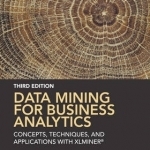
Data Mining for Business Analytics: Concepts, Techniques, and Applications with XLMiner
Galit Shmueli, Nitin R. Patel and Peter C. Bruce
Book
Data Mining for Business Analytics: Concepts, Techniques, and Applications in XLMiner(R), Third...

Planes Live - Flight Tracker
Travel and Navigation
App
Planes Live Free is a simple yet powerful flight tracking tool that lets you watch the planes online...
EmersonRose (320 KP) rated In The Dark Corner I Stood Alone in Books
Nov 20, 2019
I stood alone in a dark corner. My imagination ran wild.”
In the Dark Corner, I stood Alone is a collection of short stories by author Petra Pavlikova, published on June 12th, 2018. These short stories pull together themes of women and fairytales. Telling stories about strong women in stressful situations, difficult because they are real, and how these women pull through, with a healthy dose of the fantastical. The collection itself is a short and easy read as the stories range in length from 5-20 pages each. I loved the beautiful imagery created in these stories as they each take you on fantastic journeys.
The characters in these stories are such strong and relatable women that I fell in love with each one as I read their story. From beginning to end this book captured this beautiful whimsey that kept me captivated in each story. As you read, each has a distinctive story to tell, but they are all in the same unique voice that has a charming but straightforward tone that captures the fairytale quality splendidly. I think that my favorite story may be The Smell of Sweet Lavender, as it tackles a heart-wrenching tale of trying to be true to yourself and the cost it sometimes has on those that you love most. But each was so unique that they held different messages and meanings to them, that I could see myself having a different favorite depending on what mood I was in at the time. This is definitely one of those books that I could see myself re-reading whenever I just wanted to curl up with a sweet set of stories that allow my imagination wander in the realm of fairies and distant kingdoms. The magic in them creates a tone but the themes within them last without extra flare, making them that much more poignant.
The other thing that makes this book really stand out is the remarkable work of the illustrator Anastasia Telegina. From the small flowers and bright colored pages to the exquisite images of the women in the book, the watercolor work is astounding and fits in perfectly with the wanderlust tone of the writing. Each time I saw that stories full image, I was blown away by the beauty and talent. They play with your imagination rather than entirely putting images in your head, keeping the fluidity of the imagination intact while still creating magnificent images. Creating perhaps what is more what a child might imagine from what is described that a realistic picture. This pair clearly makes an excellent team.
These are stories for almost any age in the themes it tackles and the beautiful way in which they are told. While some of the ideas may be intense for a younger audience, the way in which the stories are told make them accessible to any reader. They are important topics dealt with in a way that is natural and very real world, while held within a slightly more fantastical space. I very much enjoyed reading this book and would definitely recommend it. I will be keeping an eye out to read more from this author. Five Stars.
In the Dark Corner, I stood Alone is a collection of short stories by author Petra Pavlikova, published on June 12th, 2018. These short stories pull together themes of women and fairytales. Telling stories about strong women in stressful situations, difficult because they are real, and how these women pull through, with a healthy dose of the fantastical. The collection itself is a short and easy read as the stories range in length from 5-20 pages each. I loved the beautiful imagery created in these stories as they each take you on fantastic journeys.
The characters in these stories are such strong and relatable women that I fell in love with each one as I read their story. From beginning to end this book captured this beautiful whimsey that kept me captivated in each story. As you read, each has a distinctive story to tell, but they are all in the same unique voice that has a charming but straightforward tone that captures the fairytale quality splendidly. I think that my favorite story may be The Smell of Sweet Lavender, as it tackles a heart-wrenching tale of trying to be true to yourself and the cost it sometimes has on those that you love most. But each was so unique that they held different messages and meanings to them, that I could see myself having a different favorite depending on what mood I was in at the time. This is definitely one of those books that I could see myself re-reading whenever I just wanted to curl up with a sweet set of stories that allow my imagination wander in the realm of fairies and distant kingdoms. The magic in them creates a tone but the themes within them last without extra flare, making them that much more poignant.
The other thing that makes this book really stand out is the remarkable work of the illustrator Anastasia Telegina. From the small flowers and bright colored pages to the exquisite images of the women in the book, the watercolor work is astounding and fits in perfectly with the wanderlust tone of the writing. Each time I saw that stories full image, I was blown away by the beauty and talent. They play with your imagination rather than entirely putting images in your head, keeping the fluidity of the imagination intact while still creating magnificent images. Creating perhaps what is more what a child might imagine from what is described that a realistic picture. This pair clearly makes an excellent team.
These are stories for almost any age in the themes it tackles and the beautiful way in which they are told. While some of the ideas may be intense for a younger audience, the way in which the stories are told make them accessible to any reader. They are important topics dealt with in a way that is natural and very real world, while held within a slightly more fantastical space. I very much enjoyed reading this book and would definitely recommend it. I will be keeping an eye out to read more from this author. Five Stars.
Lottie disney bookworm (1056 KP) rated Cinderella is Dead in Books
Jun 6, 2020
Contains spoilers, click to show
Thank you to Netgalley and Kalynn Bayron for giving me the opportunity to read an advance copy of Cinderella is Dead in exchange for an honest review.
With such a strong title to a novel, it’s easy to predict that an author would struggle to maintain the sense of danger and mystery that is immediately evoked. However, as Kalynn Bayron opens on the revelation that Cinderella has been dead for 200 years and introduces us to two young women hiding from those who are sure to kill them, I think it is safe to say that she has the drama side of things covered!
The kingdom of Mersaille was once ruled by none other than Prince Charming and Cinderella. After her untimely death, Cinderella’s tale is held in almost biblical stature for generations, with young girls reciting it each night in preparation for their own chance to attend an annual ball once they turn 16 and wishing for their own fairy godmother to grant their happily ever after.
However, as the reader enters the town of Lille 200 years later, we witness that life within the kingdom is far from that of a fairytale. The balls that act as a tribute to Cinderella are mandatory meat markets with lecherous “suitors”, domestic violence and the suppression of women is commonplace and the ruler, Prince Manford, thrives on the power, fear and violence.
The reader witnesses this abysmal society through Bayron’s use of a first-person perspective: that of our protagonist Sophia. Sophia is everything a modern protagonist should be: she questions the unjust world around her and, having just turned 16 is preparing to attend her first ball, not with excitement, but with trepidation.
Sophia reveals to the reader that a girl only has three chances to be chosen by a suitor at the ball, after that she is considered forfeit, taken away from her family in disgrace and placed either into a workhouse or service. Men, however, are under no such conditions: they can attend balls when they wish and can choose a number of girls if they want to. Many girls’ singular hope is to be chosen by a good man at the ball, one who will not beat her, perhaps even one who will take them away from Lille. This is not enough for Sophia, she wants more for her life and, as she says herself:
“I don’t want to be saved by some knight in shining armor. I’d like to be the one in the armor, and I’d like to be the one doing the saving.”
At the beginning of the book, Sophia’s main gripe with the society she lives in is that it will not allow her to be with Erin, the girl she loves. As the book continues, the underlying theme of the rights and treatment of women strengthens, along with Sophia, but the first few pages at least are centered on the teenage relationship between Sophia and Erin.
What I absolutely adored about Bayron’s writing style here is the complete lack of shock or awe in this relationship: it is mentioned right from the start and at no point in this novel does Sophia “come out”, there is simply no need. All those around Sophia, who know her and care for her, are aware of her feelings for Erin and, although Sophia is occasionally referred to as “different”, the author chooses to abolish any unnecessary labels within her novel.
Unfortunately, Bayron does not have an easy ride in store for Sophia: reeling from a firm separation from Erin, Sophia is cast a lifeline, an “easy way out” in the form of a local boy who is also “different”. Sadly, this option is quickly and dramatically ripped away from her: forcing her to find her strength pretty damn quickly as she begins a life as an outlaw.
Along her path, Sophia meets two strong female characters: Constance and Amina. Although, wildly different, both these women play a significant role in Sophia’s self-discovery.
Amina is as far from the traditional fairy godmother image as you can get and, although she feels guilt for her previous actions, it takes meeting Sophia for her to recognise her previous denial and to help change the way of the world. Amina is a protector to Sophia right to the end, in her own unique way.
Constance, what can we say about Constance? I defy anyone to read this book and not fall in love with this girl! Constance possesses the strength that Sophia does not yet recognise within herself; she is fiery and, as a descendant of an “evil stepsister”, leads a resistance movement to uncover and publicise the truth about the real tale of Cinderella. Despite, technically saving Sophia towards the beginning of the story, Constance is not Sophia’s saviour: nor is Sophia the saviour; however, the power that they find together is monumental.
Constance is a complete juxtaposition to Erin: whereas Erin accepts the rules of society out of fear for herself and her family, Constance actively rebels against them. It is almost as if they represent the paths Sophia has to choose from. Nevertheless, along their adventure, Sophia and Constance’s relationship strengthens into love. This is no fairytale, love at first sight deal though! If anything, the slow-burning romance between the two made it more believable and I really appreciated that Sophia didn’t just rebound due to Erin’s choices: she had been burnt and she was still unsure of her own feelings never mind anyone else’s.
At the hands of Bayron, Sophia experiences heartbreak, friendship, murder, love and conspiracy: she is on the brink of danger too many times to count and is constantly second guessing who she can trust. Yet, it is clear that the author adores her main character: Sophia’s journey to realise that she is enough is incredible and the strength that she finds within herself is inspirational. Sophia is also surrounded by a cast of strong female characters: there are no Prince Charming’s in this novel that’s for sure!
I wasn’t that far into this book when I decided I need to read more of Kalynn Bayron’s work. I love how there are no chapters in this novel, we are taken on this relentless journey with Sophia: the reader is not given a chance to stop and take stock, reflect or rest until it is all over and this creates the tensest experience. Even we don’t know who to trust towards the end!
‘Cinderella is Dead’ is powerful, thought-provoking and is constantly leaving the reader guessing. On a basic level the novel deals with violence, love, politics and a little bit of necromancy thrown in there for good measure. However, the intelligent writing as well as the massive plot twist and the subjects of LGBTQ love, women’s rights and domestic violence lifts this novel from that basic level into, what I predict could be a bestseller.
With such a strong title to a novel, it’s easy to predict that an author would struggle to maintain the sense of danger and mystery that is immediately evoked. However, as Kalynn Bayron opens on the revelation that Cinderella has been dead for 200 years and introduces us to two young women hiding from those who are sure to kill them, I think it is safe to say that she has the drama side of things covered!
The kingdom of Mersaille was once ruled by none other than Prince Charming and Cinderella. After her untimely death, Cinderella’s tale is held in almost biblical stature for generations, with young girls reciting it each night in preparation for their own chance to attend an annual ball once they turn 16 and wishing for their own fairy godmother to grant their happily ever after.
However, as the reader enters the town of Lille 200 years later, we witness that life within the kingdom is far from that of a fairytale. The balls that act as a tribute to Cinderella are mandatory meat markets with lecherous “suitors”, domestic violence and the suppression of women is commonplace and the ruler, Prince Manford, thrives on the power, fear and violence.
The reader witnesses this abysmal society through Bayron’s use of a first-person perspective: that of our protagonist Sophia. Sophia is everything a modern protagonist should be: she questions the unjust world around her and, having just turned 16 is preparing to attend her first ball, not with excitement, but with trepidation.
Sophia reveals to the reader that a girl only has three chances to be chosen by a suitor at the ball, after that she is considered forfeit, taken away from her family in disgrace and placed either into a workhouse or service. Men, however, are under no such conditions: they can attend balls when they wish and can choose a number of girls if they want to. Many girls’ singular hope is to be chosen by a good man at the ball, one who will not beat her, perhaps even one who will take them away from Lille. This is not enough for Sophia, she wants more for her life and, as she says herself:
“I don’t want to be saved by some knight in shining armor. I’d like to be the one in the armor, and I’d like to be the one doing the saving.”
At the beginning of the book, Sophia’s main gripe with the society she lives in is that it will not allow her to be with Erin, the girl she loves. As the book continues, the underlying theme of the rights and treatment of women strengthens, along with Sophia, but the first few pages at least are centered on the teenage relationship between Sophia and Erin.
What I absolutely adored about Bayron’s writing style here is the complete lack of shock or awe in this relationship: it is mentioned right from the start and at no point in this novel does Sophia “come out”, there is simply no need. All those around Sophia, who know her and care for her, are aware of her feelings for Erin and, although Sophia is occasionally referred to as “different”, the author chooses to abolish any unnecessary labels within her novel.
Unfortunately, Bayron does not have an easy ride in store for Sophia: reeling from a firm separation from Erin, Sophia is cast a lifeline, an “easy way out” in the form of a local boy who is also “different”. Sadly, this option is quickly and dramatically ripped away from her: forcing her to find her strength pretty damn quickly as she begins a life as an outlaw.
Along her path, Sophia meets two strong female characters: Constance and Amina. Although, wildly different, both these women play a significant role in Sophia’s self-discovery.
Amina is as far from the traditional fairy godmother image as you can get and, although she feels guilt for her previous actions, it takes meeting Sophia for her to recognise her previous denial and to help change the way of the world. Amina is a protector to Sophia right to the end, in her own unique way.
Constance, what can we say about Constance? I defy anyone to read this book and not fall in love with this girl! Constance possesses the strength that Sophia does not yet recognise within herself; she is fiery and, as a descendant of an “evil stepsister”, leads a resistance movement to uncover and publicise the truth about the real tale of Cinderella. Despite, technically saving Sophia towards the beginning of the story, Constance is not Sophia’s saviour: nor is Sophia the saviour; however, the power that they find together is monumental.
Constance is a complete juxtaposition to Erin: whereas Erin accepts the rules of society out of fear for herself and her family, Constance actively rebels against them. It is almost as if they represent the paths Sophia has to choose from. Nevertheless, along their adventure, Sophia and Constance’s relationship strengthens into love. This is no fairytale, love at first sight deal though! If anything, the slow-burning romance between the two made it more believable and I really appreciated that Sophia didn’t just rebound due to Erin’s choices: she had been burnt and she was still unsure of her own feelings never mind anyone else’s.
At the hands of Bayron, Sophia experiences heartbreak, friendship, murder, love and conspiracy: she is on the brink of danger too many times to count and is constantly second guessing who she can trust. Yet, it is clear that the author adores her main character: Sophia’s journey to realise that she is enough is incredible and the strength that she finds within herself is inspirational. Sophia is also surrounded by a cast of strong female characters: there are no Prince Charming’s in this novel that’s for sure!
I wasn’t that far into this book when I decided I need to read more of Kalynn Bayron’s work. I love how there are no chapters in this novel, we are taken on this relentless journey with Sophia: the reader is not given a chance to stop and take stock, reflect or rest until it is all over and this creates the tensest experience. Even we don’t know who to trust towards the end!
‘Cinderella is Dead’ is powerful, thought-provoking and is constantly leaving the reader guessing. On a basic level the novel deals with violence, love, politics and a little bit of necromancy thrown in there for good measure. However, the intelligent writing as well as the massive plot twist and the subjects of LGBTQ love, women’s rights and domestic violence lifts this novel from that basic level into, what I predict could be a bestseller.

Golden Axe Classic
Games, Entertainment and Stickers
App
Cast earth-shattering spells and smash Death Adder’s armies in SEGA’s fantasy classic – Golden...
Bob Mann (459 KP) rated Bad Times at the El Royale (2018) in Movies
Sep 28, 2021
Why is everyone not raving about this movie?
Imagine a ménage à trois of Agatha Christie, Alfred Hitchcock and Quentin Tarantino at the Overlook Hotel with a banging 60’s soundtrack. Got that unpleasant vision in your mind? Good! You’re halfway there to getting the feel of “Bad Times at the El Royale”. And they really are bad times!
The Plot
It’s 1969 and an oddball set of characters arrive at the faded glory of the El Royale hotel at Lake Tahoe: “a bi-state establishment” straddling the Nevada/California border: so describes the manager-cum-bellhop-cum-bartender-cum-cleaner Miles Miller (Lewis Pullman, soon to appear as Maverick in the “Top Gun” sequel). The motley crew include Laramie Seymour Sullivan, a vacuum cleaner salesman (Jon Hamm); Father Daniel Flynn, an oddly-acting priest (Jeff Bridges); Darlene Sweet, a struggling Motown-style singer (Cynthia Erivo); and Emily Summerspring, a rude and abrupt hippy-chick with attitude (Dakota Johnson). But noone is quite who they seem and their twisted and convoluted lives combine in a memorable night of surprise and violence at the El Royale.
The turns
I’ve often expressed my admiration for the Screen Actor’s Guild Awards and their category of “Best Ensemble Cast”: at a time when there are controversial suggestions of additions to the Oscars, this is one I would like to see (along with a “Best Stunt Team” award that I’ve previously lobbied for). And here is my second serious candidate for the “Best Ensemble Cast” Oscar in 2018, my first being “Three Billboards in Ebbing, Missouri” (which in their books would count as 2017 anyway!) Everyone really works hard on this film and the larger than life characters suck you into the story because of the quality and intensity of their performances.
Out in front of the pack are the simply brilliant Jeff Bridges and Cynthia Erivo, an actress new to me who has a great voice and made a big impression. Scenes between the pair are just electric. Jon Hamm is as quirkily great as ever and Dakota “not Fanning” Johnson is far better in this film than any recent stuff I’ve seen her in. Another standout was another newcomer to me – young Cailee Spaeny as Rose, looking for all the world in some scenes like a young Carey Mulligan. While we’re on lookalikes, Lewis Pullman (best known to me for “Battle of the Sexes“) looks very like Tom Holland in some scenes.
The Review
I found this film to be just enormously entertaining. It is very Tarantino-esque in its claustrophobic nature (compare it with “The Hateful 8” in that respect) and with its quirky episodic flash cards (compare with “Pulp Fiction” or “Kill Bill”) but for me was much more appetising since – although very violent – it never stooped to the queasy “blow your face off” excesses of Tarantino, that I personally find distasteful. Where it apes Hitchcock is in its intricate plotting: the story regularly throws you off-balance with some genuinely surprising twists and turns that you never see coming. And the interesting time-splicing and flashbacks also keep you on your mental toes. To say any more or to give any examples would be a spoilerish crime, so I will refrain. This is a dish best served cold (so avoid the trailer if you can).
The film has a marvellous sense of place and time and key to establishing that is some superb set design; some brilliant costumes; and – most of all – an exquisitely chosen song catalogue. The great Michael Giacchino is behind the music, and he does a truly fabulous job, not just with the song selection but also with the background music. This never seems to intrude noticeably until the end titles, when you realise it’s been insistently working on you all the time: the best sort of soundtrack.
There are some films that make you marvel how someone sat at a keyboard and got a screenplay down on paper so satisfyingly. While it could be accused of aping Tarantino somewhat, for me this is still one such film. The writer/director Drew Goddard has come from the J.J. Abrams stable of “Alias” and “Lost”, and has previously written the great screenplays for films including “Cloverfield”, “The Martian” and “World War Z“. His only previous directorial feature was “The Cabin in the Woods” (which I’ve not seen), but after this he is definitely on my movie radar: his next film will be “X-force”: a “Deadpool 2” follow-on with Ryan Reynolds, Josh Brolin and Zazie Beetz, and I can’t wait to see that.
If there’s a criticism it’s that at 141 minutes its a tad long. It never to me felt like a film that long, such was the entertainment value, but while I just loved the development of character just a few of the scenes felt a little leisurely and superfluous. Trim 10 minutes off the running time – no more – and it might have felt tighter still.
I didn’t mention one star name in “The Turns” section, and that’s Chris Hemsworth. He actually does a great job in his demanding Messianic role of Billy Lee, but I just had trouble equating the “Thor” star as being “all kinds of bad”: this felt like a slight misstep in the casting to me.
Summary
This film is without a doubt going to storm into my Top 10 for the year. It’s an entertaining delight, full of twists, turns, deliciously wordy dialogue and a satisfyingly open ending. I can’t believe this film hasn’t been top billing in multiplexes up and down the country for WEEKS on end. If you get the chance, my advice would be to seek this out before it disappears.
The Plot
It’s 1969 and an oddball set of characters arrive at the faded glory of the El Royale hotel at Lake Tahoe: “a bi-state establishment” straddling the Nevada/California border: so describes the manager-cum-bellhop-cum-bartender-cum-cleaner Miles Miller (Lewis Pullman, soon to appear as Maverick in the “Top Gun” sequel). The motley crew include Laramie Seymour Sullivan, a vacuum cleaner salesman (Jon Hamm); Father Daniel Flynn, an oddly-acting priest (Jeff Bridges); Darlene Sweet, a struggling Motown-style singer (Cynthia Erivo); and Emily Summerspring, a rude and abrupt hippy-chick with attitude (Dakota Johnson). But noone is quite who they seem and their twisted and convoluted lives combine in a memorable night of surprise and violence at the El Royale.
The turns
I’ve often expressed my admiration for the Screen Actor’s Guild Awards and their category of “Best Ensemble Cast”: at a time when there are controversial suggestions of additions to the Oscars, this is one I would like to see (along with a “Best Stunt Team” award that I’ve previously lobbied for). And here is my second serious candidate for the “Best Ensemble Cast” Oscar in 2018, my first being “Three Billboards in Ebbing, Missouri” (which in their books would count as 2017 anyway!) Everyone really works hard on this film and the larger than life characters suck you into the story because of the quality and intensity of their performances.
Out in front of the pack are the simply brilliant Jeff Bridges and Cynthia Erivo, an actress new to me who has a great voice and made a big impression. Scenes between the pair are just electric. Jon Hamm is as quirkily great as ever and Dakota “not Fanning” Johnson is far better in this film than any recent stuff I’ve seen her in. Another standout was another newcomer to me – young Cailee Spaeny as Rose, looking for all the world in some scenes like a young Carey Mulligan. While we’re on lookalikes, Lewis Pullman (best known to me for “Battle of the Sexes“) looks very like Tom Holland in some scenes.
The Review
I found this film to be just enormously entertaining. It is very Tarantino-esque in its claustrophobic nature (compare it with “The Hateful 8” in that respect) and with its quirky episodic flash cards (compare with “Pulp Fiction” or “Kill Bill”) but for me was much more appetising since – although very violent – it never stooped to the queasy “blow your face off” excesses of Tarantino, that I personally find distasteful. Where it apes Hitchcock is in its intricate plotting: the story regularly throws you off-balance with some genuinely surprising twists and turns that you never see coming. And the interesting time-splicing and flashbacks also keep you on your mental toes. To say any more or to give any examples would be a spoilerish crime, so I will refrain. This is a dish best served cold (so avoid the trailer if you can).
The film has a marvellous sense of place and time and key to establishing that is some superb set design; some brilliant costumes; and – most of all – an exquisitely chosen song catalogue. The great Michael Giacchino is behind the music, and he does a truly fabulous job, not just with the song selection but also with the background music. This never seems to intrude noticeably until the end titles, when you realise it’s been insistently working on you all the time: the best sort of soundtrack.
There are some films that make you marvel how someone sat at a keyboard and got a screenplay down on paper so satisfyingly. While it could be accused of aping Tarantino somewhat, for me this is still one such film. The writer/director Drew Goddard has come from the J.J. Abrams stable of “Alias” and “Lost”, and has previously written the great screenplays for films including “Cloverfield”, “The Martian” and “World War Z“. His only previous directorial feature was “The Cabin in the Woods” (which I’ve not seen), but after this he is definitely on my movie radar: his next film will be “X-force”: a “Deadpool 2” follow-on with Ryan Reynolds, Josh Brolin and Zazie Beetz, and I can’t wait to see that.
If there’s a criticism it’s that at 141 minutes its a tad long. It never to me felt like a film that long, such was the entertainment value, but while I just loved the development of character just a few of the scenes felt a little leisurely and superfluous. Trim 10 minutes off the running time – no more – and it might have felt tighter still.
I didn’t mention one star name in “The Turns” section, and that’s Chris Hemsworth. He actually does a great job in his demanding Messianic role of Billy Lee, but I just had trouble equating the “Thor” star as being “all kinds of bad”: this felt like a slight misstep in the casting to me.
Summary
This film is without a doubt going to storm into my Top 10 for the year. It’s an entertaining delight, full of twists, turns, deliciously wordy dialogue and a satisfyingly open ending. I can’t believe this film hasn’t been top billing in multiplexes up and down the country for WEEKS on end. If you get the chance, my advice would be to seek this out before it disappears.
Hazel (1853 KP) rated A Grimm Curse (Grimm Tales #3) in Books
Dec 17, 2018
<i>This eBook was provided by the publisher via NetGalley in exchange for an honest review </i>
Janna Jennings’ latest book, <i>A Grimm Curse</i>, is set long before the previous two novellas in <i>A Grimm Tales</i> series. Rather than focusing on Andi, a girl from the “real” world, this is a story about the characters in the fairytales – most importantly Cynthia or, whom readers may know her better as, Cinderella.
As in the traditional tale, Cynthia works as a slave for her horrible stepmother and stepsisters – a fate she succumbed to after the death of her father. There is also an upcoming ball at the palace for the prince who is seeking a bride. This, however, is where the similarities end. As well as <i>Cinderella</i>, other fairytales make their appearance, particularly <i>The Frog Prince </i>and <i>Rapunzel</i>. But something is unsettling the characters; they are experiencing bad dreams. Or are they memories?
Cynthia is a much more admirable character than the original Cinderella. She is clever, determined and independent – she does not need a fairy godmother for a start! Neither has she any interest in the prince. If she is going to escape from servitude it will be by her own dexterity, rather than her reliance on someone else to save her.
<i>A Grimm Curse</i> can work as a prequel to the first in the series as it sets the scene that Andi will come across. It can also survive as a stand alone as there is no reference to the events of the other books, however knowledge of these will help the ending make more sense.
Personally I preferred <i>A Grimm Curse</i> to the stories that Jennings’ previously wrote. I had misgivings about the author’s use of fairytales that were not one of those collected by the <i>Brothers Grimm</i>. The tales in this book were, however, so therefore fit better with the title.
I strongly recommend this story to readers – adult and adolescent – who are still in love with fairytales or retellings. It is as though it is written with feminism in mind as the heroine does not need a man to rescue her, thus is in keeping with modern times rather than the time period of the originals.
Janna Jennings’ latest book, <i>A Grimm Curse</i>, is set long before the previous two novellas in <i>A Grimm Tales</i> series. Rather than focusing on Andi, a girl from the “real” world, this is a story about the characters in the fairytales – most importantly Cynthia or, whom readers may know her better as, Cinderella.
As in the traditional tale, Cynthia works as a slave for her horrible stepmother and stepsisters – a fate she succumbed to after the death of her father. There is also an upcoming ball at the palace for the prince who is seeking a bride. This, however, is where the similarities end. As well as <i>Cinderella</i>, other fairytales make their appearance, particularly <i>The Frog Prince </i>and <i>Rapunzel</i>. But something is unsettling the characters; they are experiencing bad dreams. Or are they memories?
Cynthia is a much more admirable character than the original Cinderella. She is clever, determined and independent – she does not need a fairy godmother for a start! Neither has she any interest in the prince. If she is going to escape from servitude it will be by her own dexterity, rather than her reliance on someone else to save her.
<i>A Grimm Curse</i> can work as a prequel to the first in the series as it sets the scene that Andi will come across. It can also survive as a stand alone as there is no reference to the events of the other books, however knowledge of these will help the ending make more sense.
Personally I preferred <i>A Grimm Curse</i> to the stories that Jennings’ previously wrote. I had misgivings about the author’s use of fairytales that were not one of those collected by the <i>Brothers Grimm</i>. The tales in this book were, however, so therefore fit better with the title.
I strongly recommend this story to readers – adult and adolescent – who are still in love with fairytales or retellings. It is as though it is written with feminism in mind as the heroine does not need a man to rescue her, thus is in keeping with modern times rather than the time period of the originals.
MaryAnn (14 KP) rated Fragments of Fear in Books
Nov 4, 2019
From award-winning author Carrie Stuart Parks comes a new novel with danger that reaches from a New Mexico Anasazi archaeological dig to micro- and nano-chip technology.
Evelyn Yvonne McTavish-Tavish to her friends-had her almost perfect world in Albuquerque, New Mexico, come to a crashing end with the suicide of her fiancé. As she struggles to put her life back together and make a living from her art, shes given the news that her dog is about to be destroyed at the dog pound. Except she doesnt own a dog. The shelter is adamant that the microchip embedded in the canine-with her name and address-makes it hers. Tavish recognizes the dog as one owned by an archaeologist named Pat Caron because she did a commissioned drawing of the two of them months earlier. The simple solution is to return the dog to his owner, but she arrives only to discover Carons murdered body. After meeting undercover FBI agent Sawyer Price the mystery deepens as more people start disappearing and Tavish becomes a target as well. Her only solution is to find the links between microchip technology, an Anasazi site in the desert, her fiancés death, a late-night radio show, and the dog. And the clock is ticking.
My Thoughts: This is an interesting suspense mystery novel. The author has a whimsical way of writing, that puts a little humor into the storyline. When the story begins, we have a young woman at the funeral of her fiance, then finds herself with a dog she doesn't really want and then discovers that it's the owner has been murdered. No wonder Tavish had so many panic attacks. I really enjoyed this novel. It kept my attention from the beginning and did not disappoint me throughout the story.
I enjoyed this novel, the one point I did like about this novel, is that the main character does come to Christ, and learns to overcome her fears by leaning on God.
I look forward to more from Carrie Stuart Parks.
????
Evelyn Yvonne McTavish-Tavish to her friends-had her almost perfect world in Albuquerque, New Mexico, come to a crashing end with the suicide of her fiancé. As she struggles to put her life back together and make a living from her art, shes given the news that her dog is about to be destroyed at the dog pound. Except she doesnt own a dog. The shelter is adamant that the microchip embedded in the canine-with her name and address-makes it hers. Tavish recognizes the dog as one owned by an archaeologist named Pat Caron because she did a commissioned drawing of the two of them months earlier. The simple solution is to return the dog to his owner, but she arrives only to discover Carons murdered body. After meeting undercover FBI agent Sawyer Price the mystery deepens as more people start disappearing and Tavish becomes a target as well. Her only solution is to find the links between microchip technology, an Anasazi site in the desert, her fiancés death, a late-night radio show, and the dog. And the clock is ticking.
My Thoughts: This is an interesting suspense mystery novel. The author has a whimsical way of writing, that puts a little humor into the storyline. When the story begins, we have a young woman at the funeral of her fiance, then finds herself with a dog she doesn't really want and then discovers that it's the owner has been murdered. No wonder Tavish had so many panic attacks. I really enjoyed this novel. It kept my attention from the beginning and did not disappoint me throughout the story.
I enjoyed this novel, the one point I did like about this novel, is that the main character does come to Christ, and learns to overcome her fears by leaning on God.
I look forward to more from Carrie Stuart Parks.
????
